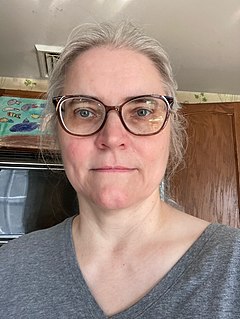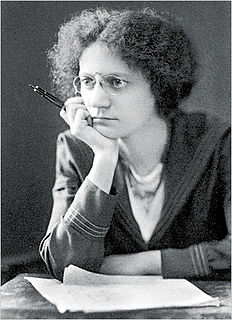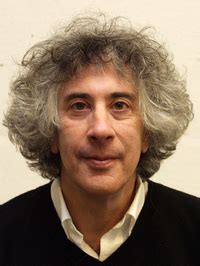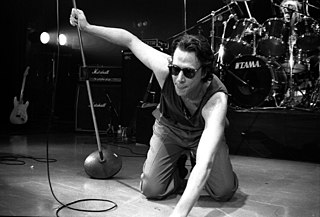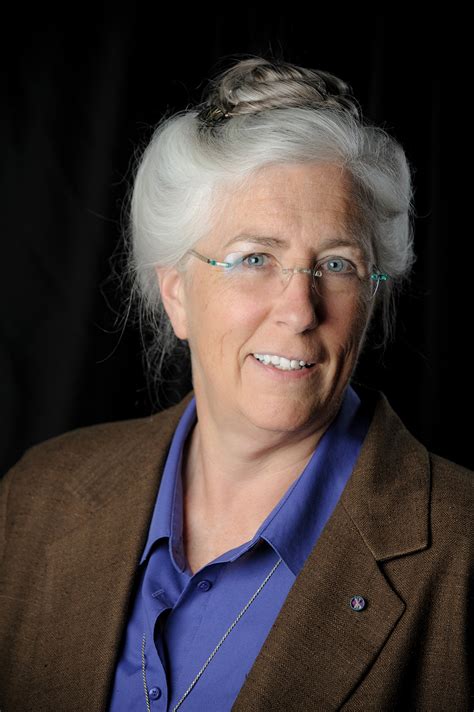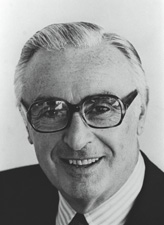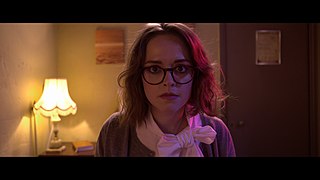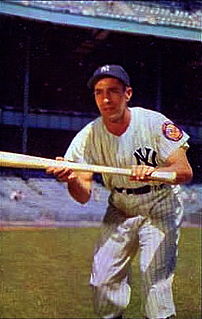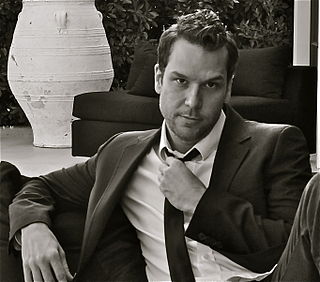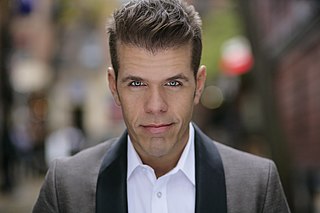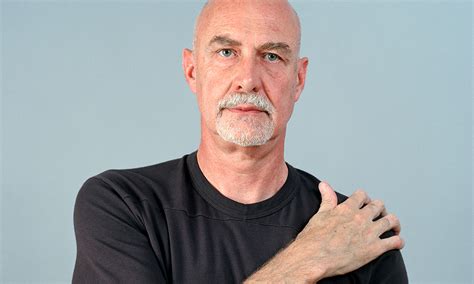Top 543 Autobiography Of A Yogi Quotes & Sayings - Page 9
Explore popular Autobiography Of A Yogi quotes.
Last updated on October 12, 2024.
This gave me occasion to observe, that when Men are employ'd they are best contented. For on the Days they work'd they were good-natur'd and chearful; and with the consciousness of having done a good Days work they spent the Evenings jollily; but on the idle Days they were mutinous and quarrelsome, finding fault with their Pork, the Bread, and in continual ill-humour. (Autobiography, 1771)
A scientist sets out to conquer nature through knowledge - external nature, external knowledge. By these means he may split the atom and achieve external power. A yogi sets out to explore his own internal nature, to penetrate the atom (atma) of being. He does not gain dominion over wide lands and restless seas, but over his own recalcitrant flesh and febrile mind.
My films have always had an element of immediate autobiography, in that I shoot any particular scene according to the mood I'm in that day, according to the little daily experiences I've had and am having - but I don't tell what has happened to me. I would like to do something more strictly autobiographical, but perhaps I never will, because it isn't interesting enough.
My life has been sadly lacking in snails. I can't clearly remember any first-hand encounters. The best thing I can come up with is second-hand, a passage in Jacques Pépin's autobiography (The Apprentice: My Life in the Kitchen) in which he describes prying snails from the terrace of his vacation home and cooking them up for dinner.
A proper autobiography is a death-bed confession. A true man finds so much work to do that he has no time to contemplate his yesterdays; for to-day and to-morrow are here, with their impatient tasks. The world is so busy, too, that it cannot afford to study any man's unfinished work; for the end may prove it a failure, and the world needs masterpieces.
According to Colonel Ely Garrison, in his autobiography and according to the United States Naval Secret Service Report on Paul Warburg, the Russian Revolution had been
financed by the Rothschilds and Warburgs, with a member of the Warburg family carrying the actual funds used by Lenin and Trotsky in Stockholm in 1918.
Look, I really do not care about you. What I care about is the worlds that you bear witness to. You are nothing more than a dog with a video camera strapped on its back. As you walk the streets looking for a place to mate or piss or eat, the camera is on and we will see the world because of you... You carry the camera and we enjoy the world. (On images as autobiography)
I was roommates with 2 of the guys who were influential in forming the Black Arts philosophy. I called them "goons," and [Amiri] Baraka took offense at that. But if you read his autobiography, the night we went up there for a fundraiser, he talks about how he wished that some violence would happen to us. How do you like Baraka as a gracious host?
Here is a quilted book about mathematical practice, each patch wonderfully prepared. Part invitation to number theory, part autobiography, part sociology of mathematical training, Mathematics without Apologies brings us into contemporary mathematics as a living, active inquiry by real people. Anyone wanting a varied, cultured, and penetrating view of today's mathematics could find no better place to engage.
I have a song I wrote called “Autobiography.” I came from a very intense living situation, with having a parent on drugs and not having a lot of money. So I always want to talk about the real things. But I think 90 percent of my music, I want it to be 'feel-good music'. I'm already recording tracks for my album, but when it comes time to actually say, 'this is the album,' I may be in a completely different space than I'm in right now.
Cultures, when they meet, influence one another, whether people like it or not. But Americans don't have any way of describing this secret that has been going on for more than two hundred years. The intermarriage of the Indian and the African in America, for example, has been constant and thorough. Colin Powell tells us in his autobiography that he is Scotch, Irish, African, Indian, and British, but all we hear is that he is African.
The problem with an autobiography is that all these extra factors make it difficult. You don't want to hurt people's feelings. You don't know how much you can trust your memory. You don't want it to be self-serving. And you have all these issues about how to present yourself. All these factors make it harder to do than a novel.
Chronicle Books is a wonderful book company. I love how everything represents who I am. The Diva Rules! is not an autobiography in the sense that I am talking about my life but more about my journey as to where I am now. People told me I would never make it. I was staring in the face of adversity and did it anyway. I chronicle it through the years. It is about finding your strength.
When you realize how hard it is to know the truth about yourself, you understand that even the most exhaustive and well-meaning autobiography, determined to tell the truth, represents, at best, a guess. There have been times in my life when I felt incredibly happy. Life was full. I seemed productive. Then I thought,"Am I really happy or am I merely masking a deep depression with frantic activity?" If I don't know such basic things about myself, who does?
I believe that if we could see the chapters that are missing from the book [The Autobiography of Malcolm X], we would gain an understanding as to why perhaps - perhaps - the F.B.I., the C.I.A., the New York Police Department and others in law enforcement greatly feared what Malcolm X was about, because he was trying to build a broad - an unprecedented black coalition across the lines of black nationalism and integration. And in way, it presages 30 years ahead of time, the Million Man March.
Somebody talked me into writing an autobiography about six or seven years ago. And I said I'd try. We talked into a tape recorder, and after a couple of months, I said, To hell with it. I was so depressed. It was like saying, 'This is the end.' I was more interested in what the hell was coming the next day or the next week.
Tell me about yourself, Miss Russel." I started to give him the obligatory response, first the demurral and then the reluctant flat autobiography, but some slight air of polite inattention in his manner stopped me. Instead, I found myself grinning at him. "Why don't you tell me about myself, Mr. Holmes?
Memoir is trustworthy and its truth assured when it seeks the relation of self to time, the piecing of the shards of personal experience into the starscape of history's night. The materials of memoir are humble, fugitive, a cottage knitting industry seeking narrative truth across the crevasse of time as autobiography folds itself into the vast, fluid essay that is history. A single voice singing its aria in a corner of the crowded world.
Plato said that poets should be excluded from the ideal republic because they are such liars. I am a poet, and I affirm that this is true. About no subject are poets tempted to lie so much as about their own lives; I know one of them who has floated at least five versions of his autobiography, none of them true. I of course - being also a novelist - am a much more truthful person than that. But since poets lie, how can you believe me?
My meditation techniques ARE dangerous. In fact there cannot be any meditation techniques which are not dangerous. If they are not dangerous, they are not meditation techniques, they are tricks. Just like Transcendental Meditation of Maharishi Mahesh Yogi. They are mental tricks. Just consolatory. No danger. At the most they can give you good sleep, that's all. If you miss, you don't miss anything, you remain the same. If you attain, you attain to good sleep, that's all. No danger involved.
For better or worse, I seem to gravitate toward writing about something or someone else, then have my own self shove its way into that story. It seems insanely narcissistic. But I also think there's a particular effect that comes from using my autobiography in service to another story, as opposed to being the subject. I'm much more comfortable working in that mode. And I do think I have a persona or mood that I keep coming back to: self-conscious, self-critical, unsure. I write a lot about bodies, particularly male ones, usually as a point of emphasis for my insecurities about my own.
There's a lot of material from my life in my books, but they're not really autobiographical, in the sense that they're not about my life. So, in 'A Feather on the Breath of God' I write about my parents, I write about this Russian immigrant, I write about the world of dance, but it isn't an autobiography; so much is left out.
When you write something you know, you're making a story that will work, whether or not there's bits taken. It's always funny to me when people say, 'Well, it's clearly autobiographical,' and I say, 'Well, how do you know my autobiography?' Certainly, there are things that are connected, but I just think it's a very interesting assumption.
Obviously, in marketing, the best tool is to show the autobiography in fiction. It's inevitable how that happens, but it's generic. Say I've written a story where my sister dies. 'Well, did your sister die?' No, she did not. But people use those straws to grasp at the difference between reality and fiction.
(Pete) Rose's coming clean is the most soiled conversion of convenience since ... well, Aug. 17, 1998, when DNA evidence caused Bill Clinton to undergo a memory clarification. On the diamond, no one ever wrung more success from less natural talent than Rose did. But his second autobiography - which refutes the first - makes worse the mess he has made.
Autobiographical writings, essays, interviews, various other things... All the non-fiction prose I wanted to keep, that was the idea behind this collected volume, which came out about few years ago. I didn't think of Winter Journal, for example, as an autobiography, or a memoir. What it is is a literary work, composed of autobiographical fragments, but trying to attain, I hope, the effect of music.
Poets are not so scrupulous as you are. They know how useful passion is for publication. Nowadays a broken heart will run to many editions." "I hate them for it," cried Hallward. "An artist should create beautiful things, but should put nothing of his own life into them. We live in an age when men treat art as if it were meant to be a form of autobiography. We have lost the abstract sense of beauty. Some day I will show the world what is it; and for that the world shall never see my portrait of Dorian Gray.
This may be a little bit of a provocative thing to say, but the memoirist doesn't owe the reader anything other than a good story and the inclining of the mind in the direction of memory. Of course, the memoirist is not allowed to make things up. But the really skilled memoirist knows what to leave in and what to leave out to serve the story. In autobiography you can't do that.
The autobiographer looks at life through the lens of his or her own life and really uses herself or himself as the jumping-off place to examine the social mores and the economic and political climates. In a way, the autobiography becomes history as well as the story of one person, for it becomes the story of a family or the story of the state or nation.
If one loves stories, then one would naturally love the story of the story. Or the story behind the story, pick your preposition. It does seem to me to be a kind of animal impulse almost, a mammalian curiosity. For a reader to wonder about the autobiography in a fiction may be completely unavoidable and in fact may speak to the success of a particular narrative, though it may also speak to its failure.
Johnny Ramone's autobiography is a no holds barred, straight-forward book written in a no-nonsense style that is Johnny personified. His story is written in his own actual words, so the reader gets an insight into what made him the unique, charismatic and exciting individual that he was. It also gives a great view of The Ramones from Johnny's perspective.
When books come out on religion today, what are they about, well, Noah's Ark or when we go to heaven, does our body or soul go to heaven? What was the name of the book? The Da Vinci Code. Who is seated at the last supper? Well, as brilliant as Da Vinci was, he didn't know anymore about who was seated at the last super if there ever was a last super than you or I or Yogi Berra. Well, no one is bringing anything new to the table.
The only people who can ever put ideas into context are people who don't care; the unbiased and apathetic are usually the wisest dudes in the room. If you want to totally misunderstand why something is supposedly important, find the biggest fan of that particular thing and ask him for an explanation. He will tell you everything that doesn't matter to anyone who isn't him. He will describe paradoxical details and share deeply personal anecdotes, and it will all be autobiography; he will simply be explaining who he is by discussing something completely unrelated to his life.
Autobiography, if there really is such a thing, is like asking a rabbit to tell us what he looks like hopping through the grasses of the field. How would he know? If we want to hear about the field on the other hand, no one is in a better circumstance to tell us-so long as we keep in mind that we are missing all those things the rabbit was in no position to observe.
Most people who read the autobiography perceive the narrative as a story that now millions of people know, and it was - it's a story of human transformation, the powerful epiphany, Malcolm's X journey to Mecca, his renunciation of the Nation of Islam's racial separatism, his embrace of universal humanity, of humanism that was articulated through Sunni Islam. Well, that's the story everybody knows.
I was working within a figurative representational framework, and there was a sense of reading the painting as a transparency, or truth, or autobiography, which I think is partially the burden of artists of color - or women, or anybody who is representing a so-called minority position. Are you actually telling a true story, or your own story? You don't just get to tell a story. The readings of the work didn't necessarily conform to my own understanding of mythology, where violence and eroticism and the body and all of these different forms coexist all the time.
an Autobiography is the truest of all books; for while it inevitably consists mainly of extinctions of the truth, shirkings of the truth, partial revealments of the truth, with hardly an instance of plain straight truth, the remorseless truth is there, between the lines, where the author-cat is raking dust upon it which hides from the disinterested spectator neither it nor its smell... the result being that the reader knows the author in spite of his wily diligences.
The difference between America and England is that the English think 100 miles is a long distance and the Americans think 100 years is a long time. The difference between an autobiography and an unauthorized biography is like the difference between an account of your life written by your mother and one written by your mother-in-law.
I always think about Katharine Graham - she was the publisher of The Washington Post. In her autobiography she talks about the way her parents met. Her father was, I think, in New York just walking by on his way home and looked into a store and saw the lady that became his wife. It was just pure luck. And she said that it once again reminds her of the role that luck and chance play in our life. I really believe that, too.
The life of each and every one of us has been written. The crucifix is my autobiography. The blood is the ink. The nails the pen. The skin the parchment. On every line of that body I can trace my life. In the crown of thorns I can read my pride. In the hands that are dug with nails, I can read avarice and greed. In the flesh hanging from him like purple rags, I can read my lust. In feet that are fettered, I can find the times that I ran away and would not let him follow. Any sin that you can think of is written there.
When I was first approached about doing an autobiography, I said, 'absolutely not.' But when I sat down, memories came pouring out. It wrote very quickly - I think there was an emotional impulse, because once I started in, the story itself carried me along. It was a very intense writing period and took a year and change to finish.
Empathic listening is so powerful because it gives you accurate data to work with. Instead of projecting your own autobiography and assuming thoughts, feelings, motives and interpretation, you're dealing with the reality inside another person's head and heart. You're listening to understand. You're focused on receiving the deep communication of another human soul.
I'll (Phil Rizzuto) never forget September 6, 1950. I got a letter threatening me, Hank Bauer, Yogi Berra and Johnny Mize. It said if I showed up in uniform against the Red Sox I'd be shot. I turned the letter over to the FBI and told my manager Casey Stengel about it. You know what Casey did? He gave me a different uniform and gave mine to Billy Martin. Can you imagine that! Guess Casey thought it'd be better if Billy got shot.
When there is no mind, you are in yoga; when there is mind you are not in yoga. So you may do all the postures, but if the mind goes on functioning, if you go on thinking, you are not in yoga. Yoga is the state of no-mind. If you can be without the mind without doing any posture, you have become a perfect yogi. It has happened to many without doing any postures, and it has not happened to many who have been doing postures for many lives.
The social scientist is in a difficult, if not impossible position. On the one hand there is the temptation to see all of society as one's autobiography writ large, surely not the path to general truth. On the other hand, there is the attempt to be general and objective by pretending that one knows nothing about the experience of being human, forcing the investigator to pretend that people usually know and tell the truth about important issues, when we all know from our own lives how impossible that is.
I'm a Democrat voting for Bush, even though on economic issues, from taxes to government regulation, I'm not happy with the Republican positions. But we're at war, and electing a president who is committed to losing it seems to be the most foolish thing we could do. Personal honesty is also important to me, and Kerry is obviously not in the running on that point, given that he can't keep track of the facts in his own autobiography.
I can't relate to the idea of suicide. I guess I'm just one of those people that is always optimistic and upbeat. But one day, I sat down. I said 'You know what? Just to kind of purge myself, I want to see what its like to feel that low'. So I decided to write a suicide note. Yeah, just to kinda flush it out there and put it on a page. And I started to do this, and I had an epiphany. I'll share this with you: a suicide note that is written by somebody that is not suicidal is called an autobiography. I am on Chapter 58.
I you're writing memoir, but it even comes up in fiction. People just assume that you're writing thinly veiled autobiography. And particularly, I think, for people of color, our work is always seen as kind of anthropological artifact regardless. So, there's always going to be that assumption, but even more so in a memoir because often the names aren't even changed. It is easier to verify.
Despite the natural belittling of one's self, the doubts, the insecurities, we have to wake up to the realisation that we all write our own autobiography, we are the authors of our life story. Realising that, write a good story with your life and make sure to write yourself as the protagonist. Be the hero of your journey.
I'd never put much thought into writing an autobiography before, because while I have this public persona of being extremely confident, I also am extremely filled with self-doubt, worry and insecurity. This book came about because I was trying to sell another book, unsuccessfully, about health and wellness.
The ‘I’ character in journalism is almost pure invention. Unlike the ‘I’ of autobiography, who is meant to be seen as a representation of the writer, the ‘I’ of journalism is connected to the writer only in a tenuous way—the way, say, that Superman is connected to Clark Kent. The journalistic ‘I’ is an overreliable narrator, a functionary to whom crucial tasks of narration and argument and tone have been entrusted, an ad hoc creation, like the chorus of Greek tragedy. He is an emblematic figure, an embodiment of the idea of the dispassionate observer of life.
I’m not the smartest guy in the world, but I’m certainly not the dumbest. I mean, I’ve read books like "The Unbearable Lightness of Being" and "Love in the Time of Cholera", and I think I’ve understood them. They’re about girls, right? Just kidding. But I have to say my all-time favorite book is Johnny Cash’s autobiography "Cash" by Johnny Cash.
Anyone who has read Yeats's wonderful Autobiography will remember his Sligo shabby, shadowed, half country and half sea, full of confused romance, superstition, poverty, eccentricity, unrecognized anachronism, passion and ignorance and the little boy's misery. Yeats was treated well but was bitterly unhappy; he prayed that he would die, and used often to say to himself: "When you are grown up, never talk as grown-up people do of the happiness of childhood.
Prep school, public school, university: these now tedious influences standardize English autobiography, giving the educated Englishman the sad if fascinating appearance of a stuffed bird of sly and beady eye in some old seaside museum. The fixation on school has become a class trait. It manifests itself as a mixture of incurious piety and parlour game.
[Cindy Sherman's] photographs reverse the terms of art and autobiography. They use art not to reveal the artist's true self but to show the self as an imaginary construct. There is no real Cindy Sherman in these photographs; there are only the guises she assumes. And she does not create these guises; she simply chooses them in the way that any of us do.



